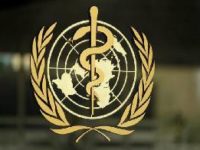- Germs now resistant to previously impenetrable Polymyxins
- Experts warn of spread of uncontrollable superbugs
- The more antibiotics are used, the more bacteria evolve to resist them
 Superbugs are threatening to unleash a global epidemic of untreatable infections after breaching the last line of antibiotic defences, scientists announced last night.
Superbugs are threatening to unleash a global epidemic of untreatable infections after breaching the last line of antibiotic defences, scientists announced last night.
Polymyxins – a group of drugs classed as critical to human medicine – were until now the only group of antibiotics that worked when all others had failed.
But experts have identified the first germs to become resistant to the drugs. They warned of the inevitable spread of uncontrollable superbugs that attack the blood and lungs.
The discovery was made by Chinese doctors working with UK experts from Bristol and Cardiff universities.
Writing in the medical journal Lancet Infectious Diseases, they said they had found a gene which enables infectious bacteria such as E.coli to become untreatable.
The alarming findings show that the mobile gene can easily be transferred to other types of bacteria.
Bugs such as Klebsiella, which causes pneumonia and blood infections, could become resistant to treatment as a result, the team found.
Lead researcher Professor Jian-Hua Liu, from the South China Agricultural University in Guangzhou, said: ‘These are extremely worrying results. The polymyxins were the last class of antibiotics in which resistance was incapable of spreading from cell to cell.’
Medication: Superbugs are becoming resistant to Polymyxins, the last resort in infections therapy
Medication: Superbugs are becoming resistant to Polymyxins, the last resort in infections therapy
The problem was first spotted on a pig farm in Shanghai, where routine tests found an E.coli strain resistant to a type of polymyxin drug called colistin. Further tests were done on pigs in four Chinese provinces, and pork and chicken sold in 30 markets and 27 supermarkets across Guangzhou province.
Bacteria from infected patients at two hospitals in Guangdong and Zhejiang provinces were also tested.
A major problem is that polymyxins are widely used in farming. If bugs in animals become resistant to the drugs, they could be transferred to humans who eat the meat.
Dr Margaret Chan, head of the World Health Organization, warned this week that superbugs are undermining the advances of modern medicine. ‘The rise of antibiotic resistance is a global health crisis, and governments now recognise it as one of the greatest challenges for public health today,’ she said.
‘It is reaching dangerously high levels in all parts of the world.’
The more that antibiotics are used – whether in humans or animals – the easier it is for bacteria to evolve to become resistant to them. Yet colistin was the fifth most-widely used antibiotic in European agriculture in 2010.
Professor Nigel Brown, president of the Microbiology Society, said: ‘Another line of defence against infection is in danger of being breached.’
PETS MAY BE BEHIND THE SPREAD OF SUPERBUGS
Pets may be fuelling the spread of superbugs that are resistant to antibiotics, health officials warn.
Public Health England has told owners to ensure full courses of medication are given to animals.
Antibiotics are losing their ability to treat illnesses as they have been so overused by GPs and vets, enabling bacteria to become resistant.
Chief Medical Officer Dame Sally Davies fears patients will soon die from cuts and routine operations as a result.
Jill Moss, who founded the Bella Moss Foundation after her dog died of MRSA, said: ‘These potentially fatal infections can travel from humans to pets and back again.’





